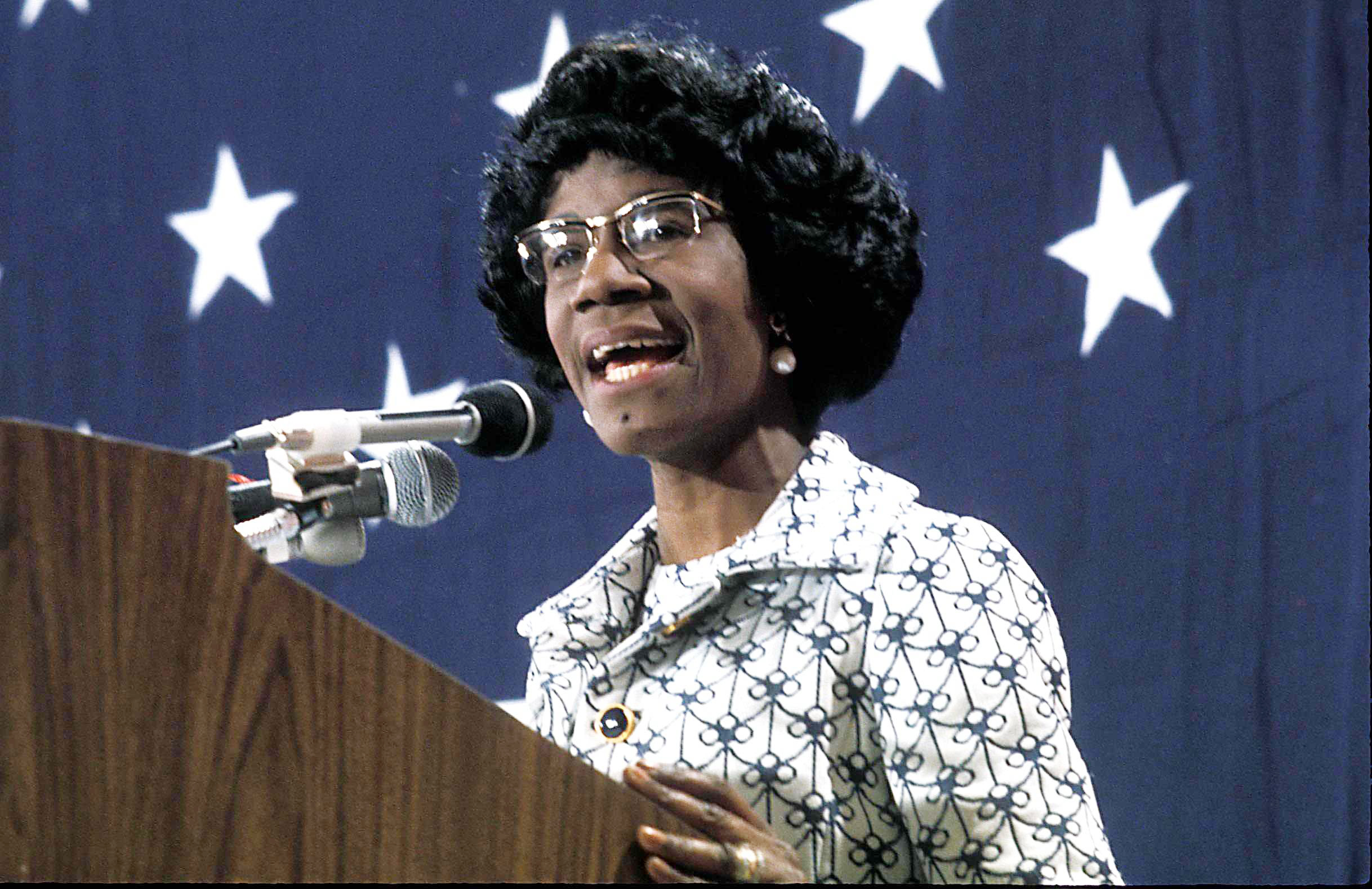
by
Hillary Clinton can potentially make history as the first woman from a major party to be elected president of the United States today.
And while it would be a remarkable feat, it could not have happened had it not been for another woman in politics who helped paved the way.
By now, most Americans should know who Shirley Chisholm is, yet the historical relevance and importance of her 1972 run for president as a major party candidate has largely gone unnoticed and unreported throughout the 2016 Presidential Election.
Chisholm was the first black woman vying for the highest office in the land – less than a decade after the passing of the Voting Rights Act of 1965. While Chisholm was shaking up U.S. politics, Hillary Rodham was then a law school student at Yale University.
Sadly, it’s not surprising that a black woman who dared to go against the political status quo would essentially be forgotten in time.
Long before Hillary touted her breaking of glass ceilings for women in politics, Chisholm was making noise in Washington herself. The U.S. representative stood against both sexism and racism during a time when women and black Americans had little voice in the political process.
Chisholm’s run as a candidate for the Democrats would help solidify the party as a more able and ready home for progressive politics. Though she would eventually lose her bid for the party’s nomination, Chisholm emerged as a history maker and a champion for feminists, decades before feminism would become trendy headline fodder in 2016.
“I am a revolutionary at heart now and I’ve got to run, even though it might be the downfall of my career,” Chisholm told The Free Lance-Star months after announcing her historic campaign. The New York politician hailing from Brooklyn promised to “shake things up”–and that she did.
Chisholm didn’t come without its fair share of opposition. Some of the Democratic political establishment and her black male colleagues were less than supportive of her run.
“They think I am trying to take power from them. The black man must step forward, but that doesn’t mean the black woman must step back,” Chisholm famously said, adding that “being a woman is a bigger drawback for me than being black.”
Read the entire story here.



